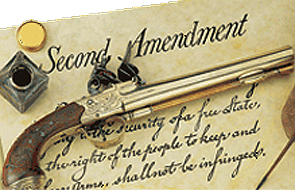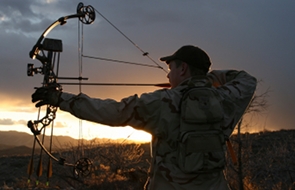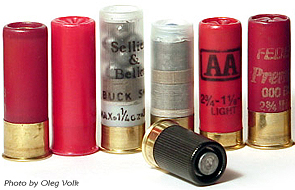SCOTUS to Hear Gun & Hunting Cases
The Wall Street Journal reported yesterday that this term of the Supreme Court may be one of the most significant for gun owners and hunters.
 The first case is obviously going to be an incredible step for the Second Amendment – in either direction. The Court has already ruled that the Second Amendment is an individual right, but the Heller case only challenged a gun ban by a federal enclave, not states or cities. By going after the gun ban in Chicago, attorney Alan Gura, the same attorney who successfully argued Heller in his first ever appearance before the Court, is hoping for a ruling that would hold the Second Amendment is a fundamental right that must by honored by state and local governments.
The first case is obviously going to be an incredible step for the Second Amendment – in either direction. The Court has already ruled that the Second Amendment is an individual right, but the Heller case only challenged a gun ban by a federal enclave, not states or cities. By going after the gun ban in Chicago, attorney Alan Gura, the same attorney who successfully argued Heller in his first ever appearance before the Court, is hoping for a ruling that would hold the Second Amendment is a fundamental right that must by honored by state and local governments.
Based on the observations of Court watchers and a report by Gura, we can expect that McDonald v. Chicago will follow a similar timeline to the Heller case. Briefs will be due starting in November with a hearing date in the spring and a decision by the end of June.
In Pennsylvania, the impact of McDonald will be minimal. Since 1776, we’ve had our own state constitutional protections against infringement. However, for the states without such protections, or with state courts unwilling to enforce those protections, a positive decision for incorporation will ensure that there are legal protections for gun owners and those who want the right to defend themselves.
 The other case seems a little less obvious for those who don’t follow the Court closely. Hunters and fans of outdoor programming will want to keep a close eye on US v. Stevens when the arguments are made next Tuesday.
The other case seems a little less obvious for those who don’t follow the Court closely. Hunters and fans of outdoor programming will want to keep a close eye on US v. Stevens when the arguments are made next Tuesday.
Robert Stevens is an unsympathetic plaintiff in a case that could hurt all hunters and outdoor media news sources. He was convicted of selling videos of illegal dog fights in Virginia. He happens to be the first person charged under a 1999 law that bans the depiction of animal cruelty. Unfortunately for lawful hunters, the definition of animal cruelty is extremely broad in the statute. In the amicus brief filed by NRA, the threats are outlined as such:
Although apparently intended to address only depictions of depraved animal cruelty such as crush videos, Section 48 also criminalizes hunting-related media that indisputably is entitled to First Amendment protection. For example, all of the following fall within Section 48(a)’s criminal prohibition: selling a video depicting a deer hunt to a citizen of the District of Columbia, showing a television program depicting a dove hunt to a citizen of Iowa, or selling a magazine with a photograph of a mountain lion hunt to a citizen of California. Yet organizations like the NRA, retailers like Wal-Mart and Amazon.com, and media companies like ESPN create and sell these types of media into these states every day, and therefore potentially run afoul of Section 48.
Section 48(b)’s exception for works of “serious†educational, journalistic, or artistic value does not eliminate the threat to hunting media from Section 48(a)’s overbroad prohibition. While enjoyable to millions of Americans, an average hunting video or television show might not be found by a jury to have “serious†educational, journalistic, or artistic value or—as the district court here interpreted the standard—to be of “great import.â€
Section 48 thus is not narrowly tailored to achieve—and does not use the least restrictive means to achieve—the Government’s stated objectives of eliminating animal cruelty and the societal implications flowing from animal cruelty. Moreover, Section 48 criminalizes substantially more protected speech, including hunting media, than all of the speech that the Government claims is unprotected. Section 48 is therefore substantially overbroad on its face.
Never has a statute that reaches this far beyond the Government’s stated interests—and that reaches so much protected speech—been upheld under the First Amendment.
Additional briefs have been filed by groups such as Safari Club International, the Congressional Sportsmen’s Foundation (a group that supports the Congressional Sportsmen’s Caucus), Professional Outdoor Media Association, Pennsylvania Outdoor Writers Association, and National Shooting Sports Foundation.
A win for free speech in this case means that images and videos of Pennsylvania bear hunts can be legally sold and viewed in New Jersey (a state that banned bear hunts to appease animal rights activists) – whether in an edition of Field & Stream or on an episode of American Hunter Television.
